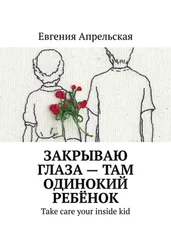But two years later, when word came to me that Ricky had hung himself, I wanted that feeling. I dusted off the tape and listened to the song over and over again for several days. But then the music pulled me in two directions. I was drawn toward Ricky, remembering what he had been like at his best, and toward the potent memory of those first months in prison, when I faced the reckoning for loving him at his worst.
As I dance, I wish desperately that I had a pair of pointe shoes. Now and then, holding on to the bars or my bunk, I hesitantly try to rise onto my big toes; I believe I could do it, if only I had the right shoes. But for now I tie the loose legs of my blue pants tight against my ankles with string, and in the center of my cell I practice adagios , which are very difficult to do correctly. The guards walk past and cast long glances through my bars, probably wondering if I’ve lost my mind, but I’m suffering from nothing except a poignant song.
“Mattingly.”
I’m jarred back to reality and I come to the bars, where Officer Parker is standing with his thumbs in his belt. “They’re going to keep Hernandez in the clinic for a couple of days,” he says.
“Why? Is something wrong besides a broken arm?”
“I can’t tell you that. Privacy laws.”
I press my forehead against the cold steel bars in frustration. “Can you have her dictate a note to me? Or could I visit her? At least let me send down some of her things. Her special toothpaste and her rosary—”
“Sure, I’ll give ’em to her.”
Hastily, I gather up Janny’s favorite items and stuff them into her quilted bag, which she can identify by touch without any trouble. I reach for the romance novel, then realize nobody there will read it to her. The thought makes me feel a little desolate, and not only for Janny’s sake. It’s truly lonesome without her here. For eight years she has been beside me, and her absence calls to mind the sick feeling from my first long months of incarceration, when they kept me in administrative and then medical segregation because of my pregnancy. Without someone whose needs I can focus on, in the vacuum of human interaction, all I can think about is how terrible it is to be lonely.
Late in the evening they dim the lights. I sigh and put away my dancing socks, smoothing down the edges of moleskin that are peeling from the knit fabric. Before I crawl into bed, I pour the water from the Gatorade bottle into the sink above my toilet and peel the saturated wood pulp from the pencils. With all of the graphite safely stowed—we probably won’t have another contraband check for a while, and the grab was arbitrary in the first place—I say my last prayer of the day and pull the blanket up almost to my eyes.
I can’t stop thinking about him.
For years I forced myself not to think. When all arousing thoughts are terrible, forbidden for their awfulness or else for the yearning they bring, it’s better to make the mind a sheet of white paper, an empty screen, and the act of releasing tension as perfunctory any other bodily function. If the guards catch you, it’s thirty days in solitary. Be careful .
But to remember Ricky is to remember all things about Ricky. The dogbeat kid behind the register at the Circle K, the young man clowning on the beach, the impish boy with one of my kittens in his arms, the bare-skinned lover and, yes, the raging, dirty wanted man with nothing left to lose. Clear as any other memory is the sight of him pacing the kitchen with the phone pressed to his ear, his damp floppy bangs grasped in his hand, grit caught in the sweat that shone on his arms. The weight of his body amplified itself in his heavy footsteps, and his voice was a hoarse and ragged edge of what it had once been. I’ll talk to Clinton Brand, he half-shouted, over and over. You want to talk to me, send him in. Send him right here. Clinton Brand .
I scroll back. Picture the one before. The second-to-last Ricky.
Sometimes, when he had worked the graveyard shift at the Circle K, I would come to the house after work and find him fast asleep on his mattress on the floor. I’d slip beneath the covers and find him already nude, because he had known I was coming. After hours asleep, the space under the covers was as heated as an animal’s den. I would run my hands all over his buttery skin, drinking in the scent of him: warm and alive and male, a body that my own body wanted to pull close, hold tightly. Not cologne or shampoo or soap—I loved the smell that ran beneath all those things. The one that completed a circuit in my brain, made a tingle of electricity dance down my spine.
Soon enough he would awaken and turn to me. Unbutton my blouse, run a warm, clay-roughened hand down my belly. Roll onto his back and relax into my touch along the sparse hair of his chest and simple flat plane of his stomach, and then the part of him I’d first feared, then loved. When I wrapped my hand around him he purred deep in his throat like one of our cats.
It’s what I miss hopelessly. How perfect the fit of his body into mine. The way he moved as we both grappled for what was just out of reach, his arousal built to feed and vanquish mine, and mine his. We could make each other desperate for what we alone had created, and then destroy it together.
There is no substitute, not inside nor outside these walls, for a lover who wants you.
I roll onto my stomach and keep it as quiet as I can.
* * *
In the morning the regular wakeup call sounds, and we all rise and head back to work. I return to the drawing of Guernica with intense focus, and Shirley even bestows a compliment for the speed and quality of my work. The hours seem to vanish behind me, and before I know it I’m back in the yard, squinting in the sunlight for the first time in days.
I walk the edge of the fence, clicking my tongue, looking for Clementine. The other inmates, gang members sitting at the picnic tables, watch me the way patrons of a café watch a homeless person mumbling down the sidewalk. The other inmates here have never been fond of my indifference to making friends. Even on the outside it was always difficult for me, and in here it’s all the more perilous. People snitch about petty violations, they get transferred to other prisons, they get released. An alliance that was very valuable can become a liability if the other person is unceremoniously taken away. There’s a rule that we can’t receive mail or visits from anyone who was released in the past year, so friendships, even the most carefully cultivated ones, die. But it’s just as well. If I were spontaneously pardoned for my crimes, I’d walk away from all this and never look back. Except for Janny, whom I would never abandon, I wouldn’t maintain my loyalty to friends on the inside or cling to my identity as a former inmate. I’d shed it like a dirty snakeskin and try never to think of it again.
Clementine is nowhere to be found. Dejected, I walk back to the other side of the yard, then pace back and forth near the C.O.s for a while to work the days of laziness out of my muscles. It’s a very hot day, and I suppose the cat must have been smart enough to find shelter. Sweat trickles down my temples and catches in the wispy bits of my hair flying out from my ponytail.
Several days’ worth of mail awaits me when I return to my cell. There is a letter from Emory Pugh, my copy of the Magnificat and a package. I set the other items aside and pull apart the cardboard tabs with the excitement of a child on Christmas morning. I can’t remember the last time I got a package, and this one bears Annemarie’s name in the upper left corner. Inside, a folded note sticks up alongside a pink notepad printed with cupcakes, a set of drawing pencils, a jar of coffee and a little bag of cat treats. There is also a bar of German chocolate and a postcard of a beach scene. With shaking hands I unfold the note, and read.
Читать дальше









